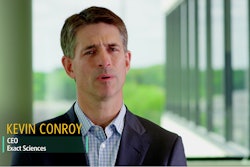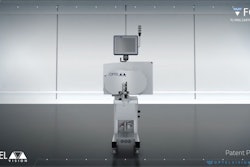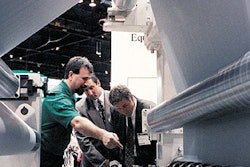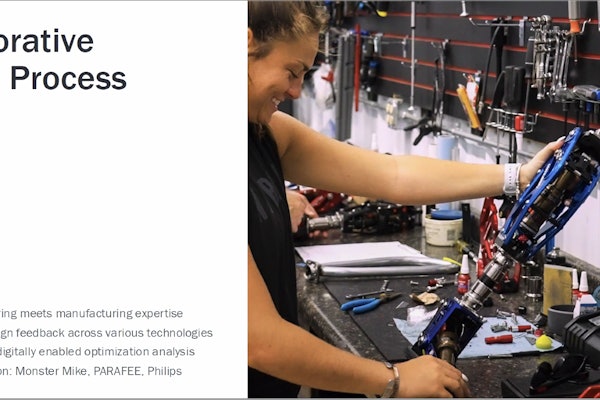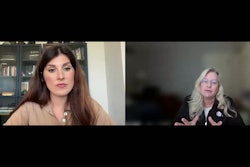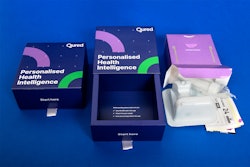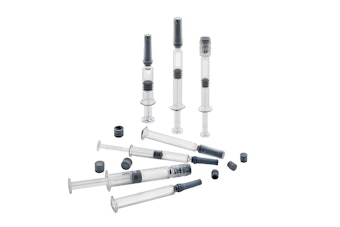Corporate layoffs continue to make headlines as companies look to slash costs and paint a rosier financial bottom line. Yet, it's the experience, wisdom, and skill of employees that can improve operational efficiency and profitability. In this story, healthcare packaging professionals tap into their knowledge with practical, real-world tips and best practices via their responses to a May 2008 "Lessons Learned" survey conducted on Packworld.com, the Web site of Packaging World magazine, the "parent" publication of Healthcare Packaging.
More than 700 respondents from food, beverage, and other industry sectors provided input into the survey. This article focuses on global respondents in the pharmaceutical, biopharmaceutical, and medical device segments.
Developing a successful project
The survey asked, "What is one important lesson that you have learned to develop a successful project?" A respondent from global medical device firm Synthes said, "Too often, packaging is at the tail end of the project. Problems that may have been easily solved in the planning phase end up jeopardizing timelines and launch dates."
The aim of a successful project, expressed a respondent from Orchid Healthcare, "is for the ultimate outcome to be relevant to the company's overall business strategy. It should be clear, specific, and recognized by all people working on the project. Objectives [should include] the major tasks to be completed at different stages of the project. The project should include the major milestones and provide a basis for more detailed project planning. Provide the framework, limits, and restrictions that ensure that the project is consistent with the company's strategies and capabilities."
A Hospira representative stated, "You must make sure requirements are clearly stated and understood. If you don't get this right, then you are off on the wrong foot and will jeopardize the on-time delivery, and possibly the project."
A Cortegra representative's lesson learned was to walk through the process on paper before implementing it. "Put the process on paper, flow-chart the process, and delineate the key triggers and handoffs for the transactions. Then, with these items documented, do a walkthrough of the project, looking for problems," he wrote.
"Establishing contractual obligations up front in grave detail with vendors," was the recommendation of a respondent with Prescription Solutions. "Leaving areas of 'gray' in contracts for equipment and services can lead to a path of litigation and a tarnished vendor relationship."
"Be organized and methodical in every aspect of the project, regardless of how trivial it may seem to the outcome. It's the little things in life that will trip you up every time," suggested a respondent from UCB Pharmaceuticals Manufacturing.
A respondent with Actavis Pharma in India stressed the importance of "understanding the product's characteristics and optimum protection it requires throughout its shelf life, selecting packages accordingly and [using] machinery suitable to get the package [to meet] regulatory and market requirements."
Sound, basic advice came from a CR Bard respondent who stated the importance of "having the right people with the right skill sets."
A survey respondent from Medtronic advised packagers looking to develop a successful project to "always plan for the package to do something you didn't expect."
"Without a powerful team approach, a plan is just a piece of paper," summarized a BD Medical representative.
10 ways to work with other departments
The Lessons Learned survey also asked the question, "Based on your experience, [can you offer] any advice on how best to work with other departments within your company on packaging-related issues?"
An Amylin Pharmaceuticals respondent advised packaging personnel to "bring the other departments into your operation early because the more they know about what your processes are, the less likely they are to be concerned when actual operations start."
Similarly, another Amylin professional suggested, "If you do not educate the other [departments] on your process and the potential problems at the beginning of a project, the likelihood of a quick resolution is low. Engaging other [departments] can only help facilitate the resolution of a problem. This works about 90 percent of the time." He said the 10 percent of the problems that don't work out tend to involve too many people that slow the process.
"Meet first with R&D about product characteristics, with the marketing team about the required presentation, with regulatory affairs, and then with production to make packaging with seal integrity and compliance," advised an Actavis Pharma respondent.
"Be respectful of their issues and hurdles," noted the UCB Pharmaceuticals Manufacturing respondent. "Remember, if you have hurdles, then others related to your project may have some too. Try to help out if these are even remotely related to any aspect of your project."
"Be as proactive as possible when sensing [departmental] needs," advised a Prescription Solutions respondent. "Always be on the lookout for new packaging solutions and lay out a complete plan of attack when bringing a solution to the table."
"When working with other departments," the Orchid Healthcare rep said, "total product development is a diverse activity requiring involvement from a variety of people, departments, and disciplines, including general management, marketing, technology, production, and finance. Good communication is critical."
A Bristol-Myers Squibb respondent pulled no punches in his recommendation for face-to-face communications: "Conference calls can serve for distant participants, but I find little excuse for someone who is in an office down the hall and still chooses to dial in to the meeting. They are most likely a disengaged team member or multitasking while on the phone. It is just not as effective."
A respondent from Tolas Healthcare Packaging preached patience. "What is important to you right now is not always at the top of the priority list for other departments," he said. "Try to give a reasonable amount of time for other departments to respond to your request-and of course, follow up."
"When addressing packaging-related issues," a Medtronic professional said, "begin with the complaints department to better understand the market feedback and then address [the issue] from there."
Another project tip came from a respondent at Anadys Pharmaceuticals who said, "Assume [a] lack of respect for the process from other departments and [work to] influence the environment in a polite, sensitive, [and] educative way."
Read more about lessons learned from multiple industry reports at www.healthcarepackaging.com/go/31
More than 700 respondents from food, beverage, and other industry sectors provided input into the survey. This article focuses on global respondents in the pharmaceutical, biopharmaceutical, and medical device segments.
Developing a successful project
The survey asked, "What is one important lesson that you have learned to develop a successful project?" A respondent from global medical device firm Synthes said, "Too often, packaging is at the tail end of the project. Problems that may have been easily solved in the planning phase end up jeopardizing timelines and launch dates."
The aim of a successful project, expressed a respondent from Orchid Healthcare, "is for the ultimate outcome to be relevant to the company's overall business strategy. It should be clear, specific, and recognized by all people working on the project. Objectives [should include] the major tasks to be completed at different stages of the project. The project should include the major milestones and provide a basis for more detailed project planning. Provide the framework, limits, and restrictions that ensure that the project is consistent with the company's strategies and capabilities."
A Hospira representative stated, "You must make sure requirements are clearly stated and understood. If you don't get this right, then you are off on the wrong foot and will jeopardize the on-time delivery, and possibly the project."
A Cortegra representative's lesson learned was to walk through the process on paper before implementing it. "Put the process on paper, flow-chart the process, and delineate the key triggers and handoffs for the transactions. Then, with these items documented, do a walkthrough of the project, looking for problems," he wrote.
"Establishing contractual obligations up front in grave detail with vendors," was the recommendation of a respondent with Prescription Solutions. "Leaving areas of 'gray' in contracts for equipment and services can lead to a path of litigation and a tarnished vendor relationship."
"Be organized and methodical in every aspect of the project, regardless of how trivial it may seem to the outcome. It's the little things in life that will trip you up every time," suggested a respondent from UCB Pharmaceuticals Manufacturing.
A respondent with Actavis Pharma in India stressed the importance of "understanding the product's characteristics and optimum protection it requires throughout its shelf life, selecting packages accordingly and [using] machinery suitable to get the package [to meet] regulatory and market requirements."
Sound, basic advice came from a CR Bard respondent who stated the importance of "having the right people with the right skill sets."
A survey respondent from Medtronic advised packagers looking to develop a successful project to "always plan for the package to do something you didn't expect."
"Without a powerful team approach, a plan is just a piece of paper," summarized a BD Medical representative.
10 ways to work with other departments
The Lessons Learned survey also asked the question, "Based on your experience, [can you offer] any advice on how best to work with other departments within your company on packaging-related issues?"
An Amylin Pharmaceuticals respondent advised packaging personnel to "bring the other departments into your operation early because the more they know about what your processes are, the less likely they are to be concerned when actual operations start."
Similarly, another Amylin professional suggested, "If you do not educate the other [departments] on your process and the potential problems at the beginning of a project, the likelihood of a quick resolution is low. Engaging other [departments] can only help facilitate the resolution of a problem. This works about 90 percent of the time." He said the 10 percent of the problems that don't work out tend to involve too many people that slow the process.
"Meet first with R&D about product characteristics, with the marketing team about the required presentation, with regulatory affairs, and then with production to make packaging with seal integrity and compliance," advised an Actavis Pharma respondent.
"Be respectful of their issues and hurdles," noted the UCB Pharmaceuticals Manufacturing respondent. "Remember, if you have hurdles, then others related to your project may have some too. Try to help out if these are even remotely related to any aspect of your project."
"Be as proactive as possible when sensing [departmental] needs," advised a Prescription Solutions respondent. "Always be on the lookout for new packaging solutions and lay out a complete plan of attack when bringing a solution to the table."
"When working with other departments," the Orchid Healthcare rep said, "total product development is a diverse activity requiring involvement from a variety of people, departments, and disciplines, including general management, marketing, technology, production, and finance. Good communication is critical."
A Bristol-Myers Squibb respondent pulled no punches in his recommendation for face-to-face communications: "Conference calls can serve for distant participants, but I find little excuse for someone who is in an office down the hall and still chooses to dial in to the meeting. They are most likely a disengaged team member or multitasking while on the phone. It is just not as effective."
A respondent from Tolas Healthcare Packaging preached patience. "What is important to you right now is not always at the top of the priority list for other departments," he said. "Try to give a reasonable amount of time for other departments to respond to your request-and of course, follow up."
"When addressing packaging-related issues," a Medtronic professional said, "begin with the complaints department to better understand the market feedback and then address [the issue] from there."
Another project tip came from a respondent at Anadys Pharmaceuticals who said, "Assume [a] lack of respect for the process from other departments and [work to] influence the environment in a polite, sensitive, [and] educative way."
Read more about lessons learned from multiple industry reports at www.healthcarepackaging.com/go/31



